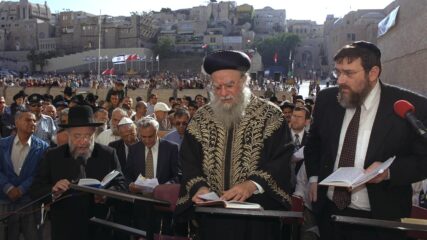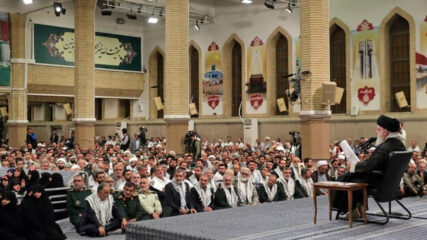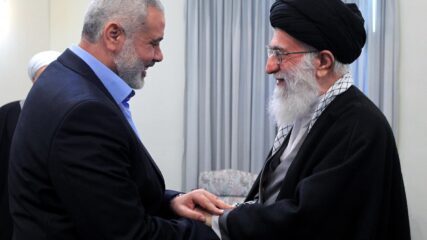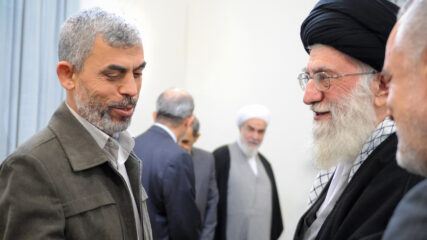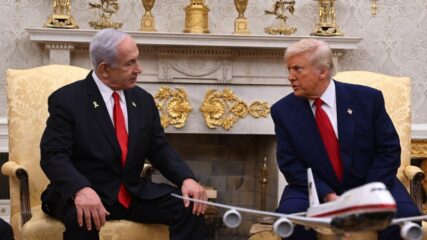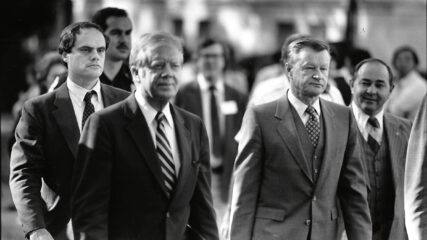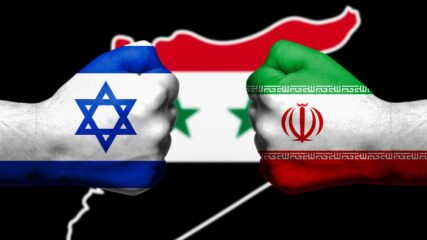1987-2025
Hamas' genocide against Israelis unleashed the long-blistering hatred that Hamas possesses for Israel and Jews. Entries include severe Arab criticism of Hamas, its detriment to Palestinian nationalism, statements by its leaders, and the war's unfolding.
November 10, 2020
UAE and Bahraini ambassadors to the U.S. provide incisively sharp assessments about why their peace accords unfolded with Israel in September 2020: to halt West Bank annexation, strengthen ties with the United States, enhance national security, and stimulate, if possible, Palestinian-Israeli negotiations.
September 22, 2023
Addressing Israel's fear of Iran's access to nuclear weapons, the same point made by his predecessor Yair Lapid stressed in 2022 at the UN, Netanyahu like Lapid praised the Abraham Accords, noting in a quite unrestrained fashion that Israel was on the 'cusp of a historic peace with Saudi Arabia." The Prime Minister did mention support for a two-state solution with the Palestinians as Lapid had done previously.
April 30, 2018
With reams of evidence secured by Israeli intelligence, the PM calls out Iran for lying about their nuclear activities both before and since signing the 2015 JCPOA nuclear agreement with six countries.
August 5, 2015
Vigorously promoting this Iran Deal as a viable way to block and limit Iran pathways to a bomb. While recognizing Israel’s intense trepidation to the deal, he forcefully claims that war remains the only alternative to accepting this agreement, or to any changes to the agreement.
December 5, 2015
Kerry states five major objectives for US foreign policy in the Middle East: mobilize partners to defeat ISIS, work diplomatically to end the civil war in Syria, keep it from destabilizing friendly nearby countries, monitor Iranian adherence to the nuclear deal, and seek a two-state solution to the Palestinian-Israeli conflict.
March 4, 2013
Biden's is seized by Iran's nuclear weapons program, and its continued support of terrorist organizations, like Hezbollah and Hamas; they endanger Israel and the world. Golda Meir told him. "Israel's secret weapon; it has no place to go."
1920s-Present
December 13, 2023, Poll of Palestinian Arab views, a survey completed two months after Hamas’s October 2023 attack on Israelis, Palestinians praised Hamas actions, with a vast majority not believing that Hamas carried out atrocities...
March 24, 1985
Jimmy Carter, "The U.S.-Iran Relationship, the Shah's Downfall, Khomeyni's Rise to Power, and the Hostage Crisis," an Emory class presentation, Atlanta, March 24, 1985, recorded and transcribed with permission.
December 31, 1977
Having made human rights a central pillar of his foreign policy, Carter nonetheless seemingly ignored the abuses the Shah of Iran imposed upon his own people. Carter's unctuous praise for the Shah at this state dinner angered Iranians in general, the clerical regime that replaced the Shah in 1979, resulting in negative consequences for Carter as he went into the 1980 presidential election.
April 30, 2025
April 2025 CIE has compiled the following list of books and articles, including some available on our website, to guide understanding of Israel’s foreign policy. Bibliographies addressing specific aspects of Israel’s foreign relations can be...


